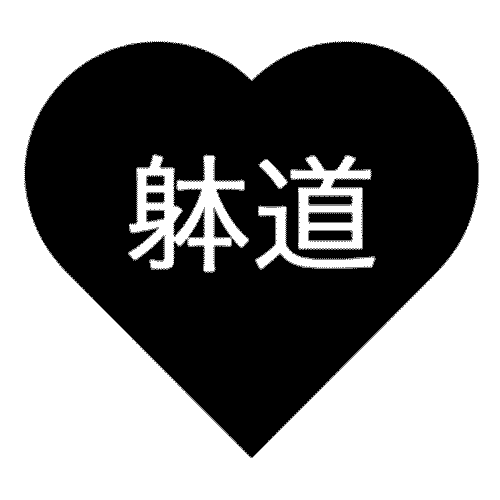There is a saying I've heard in various forms that goes like this: do not do what the master did; seek what he sought. The wisdom here is very applicable to us in Taido.
Who's the Master?
Who's the baddest mo-fo low-down this side of town? Well, that would be the Shogun of Harlem, but in our case the master was Shukumine. I don't feel that's the end of the story though, because I think the entire point of practice is to attain mastery for ourselves.
I know it's taboo in martial arts to aim for mastery. We're supposed to "follow the path" without thinking of the goal. Goal fixation and the lust of results are sure ways to stultify our development. But I'm talking about something different. Mastery is not a result at which we will someday arrive; it's a process we live. I believe that thoughtful practice of Taido is one means by which one can choose to live the path of mastery.
To live on "the path," we have to have some goal, even in the knowledge that our goals may change. Without a goal, there is no path, it's only a long, narrow field. Paths, by definition, exist for traveling between your current location/state and something else. Understanding our goals allows us to move on the path in one direction or another - otherwise, we just drift back and forth with no purpose and no meaning.
We all have reasons for practicing Taido. Looking how and why we have these goals for ourselves can be a difficult process, depending on how deeply we choose to dig into out fundamental motivations. Whatever we find, we can get more out of our Taido practice by comparing our goals with those of our art's creator. By doing so, we can "seek what the master sought" in light of our own personalities and situations in life.
What did he seek?
Shukumine's life centered around trying to answer certain questions about how a person could respond practically and creatively to the various situations that arise in combat and in life. How he answered these questions for himself will offer us few clues as to how he achieved his mastery. Doing thousands of repetitions of kushanku and bassai kata will not improve our concepts of Taido, nor will learning to pilot submarines, nor will fighting many larger opponents.
What, specifically, did Shukumine seek? The 5jokun should give us some clues. As I've written in a previous article, the principles show calm awareness, synergy of mind and body, skillful use of our bodies, judgment, and adaptability/creativity as valued attributes. In order to seek what Shukumine sought, we should apply our practice to developing these highest ideals he held.
Doing 10,000 sengi will not teach us what Taido is. It will make us very good at mimicking the outward form of Taido, but to understand what Taido is, we must seek Taido's values. If we seek these values in any action, then we are to a greater or lesser degree applying Taido to what we do. Application is a much better study method than mimicry is.
How can we find mastery in Taido?
Things that will help us understand Taido better include thinking about the design of the hokei we practice, imagining ways to move in 3-space, and applying our creativity to meeting the challenges we face in life. Asking similar questions to those asked by Shukumine will put us on the path to achieving his level of mastery.
Here are just a few examples of questions we should be asking ourselves as we practice Taido:
- How can I develop the values expressed in the 5jokun?
- What was Shukumine trying to accomplish?
- How would I go about seeking that for myself?
There are lots of other important questions too, but the most important thing is to ask them of ourselves, and not get caught up in how others have answered them. My answers are already written ad nauseam on this site, but that doesn't mean they aren't subject to change. Einstein said that "the most important thing is to keep having questions." Let's ask high-quality questions about Taido so we can find our own mastery through the process of seeking.
